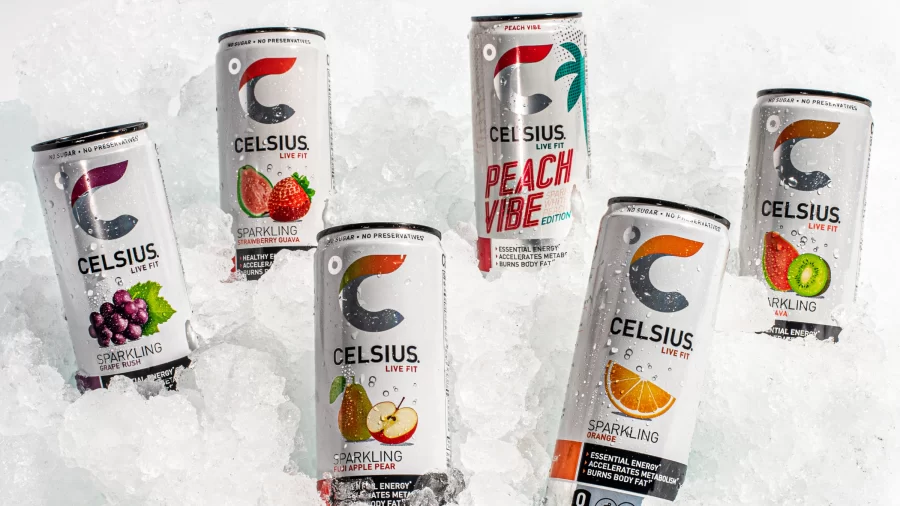An Energized Disguise-The Truth About Energy Drinks
January 3, 2023
The pin drop silence in the classroom was interrupted by the opening of the can. From my spot in the back of the classroom I could hear the pitter patter of bubbles rise to the top as someone took a sip of their carbonated drink. As students feel a prickle of fatigue they desperately reach for their energy drinks to provide an energetic reprieve. From cosmic stardust to tropical vibe these energy drinks market fantastical possibilities that students reach for through the school day. Bubbles popping and energy rising, energy drinks are a frequent accessory in everyone’s hands at school.
These energy drinks are marketed to teenagers in school who are easily attracted by the colorful shapes and catchphrases broadcasted like an alarming memento. The can seems to scream, “Drink me to get energy,” with a rocket icon seeming to blast out of space. Students believe that by drinking these drinks it will help enhance mental alertness and physical performance. There may be a significant spike in energy for a short period of time, yet it is difficult to maintain the energy as it will be followed by a crash of energy.
Moreover, these drinks are marketed to increase metabolism and improve overall health. However, this does not seem the case as there are many issues with the cans. The quantity of caffeine in each can is sometimes hard to distinguish and also varies for each brand of drinks. Thus, students may be consuming large amounts of caffeine which can lead to serious heart and blood vessel problems. Not just physically, but there are also signs of insomnia, irritability, and panic attacks that may emerge with the consumption of excessive caffeine. These risks conveniently are not explicitly written on the can. Subsequently, this can lead to potential issues in the future.
Most energy drinks are not recommended for those under 18. Yet, the presence of energy drinks is overly dominant in high school. At school, the cans are fast becoming a trend for athletes to have on game day or as a pregame drink, this drink has taken over the stands. Unknowingly, these athletes are feeding into the unhealthy snare of this energy craze.
The consumption of an energy drink everyday is a health hazard; however, if students were to drink them occasionally that is not a problem. The problem rests on the over consumption of caffeine and artificial sweeteners. In small amounts, caffeine helps to improve mood and helps you feel more alert.






